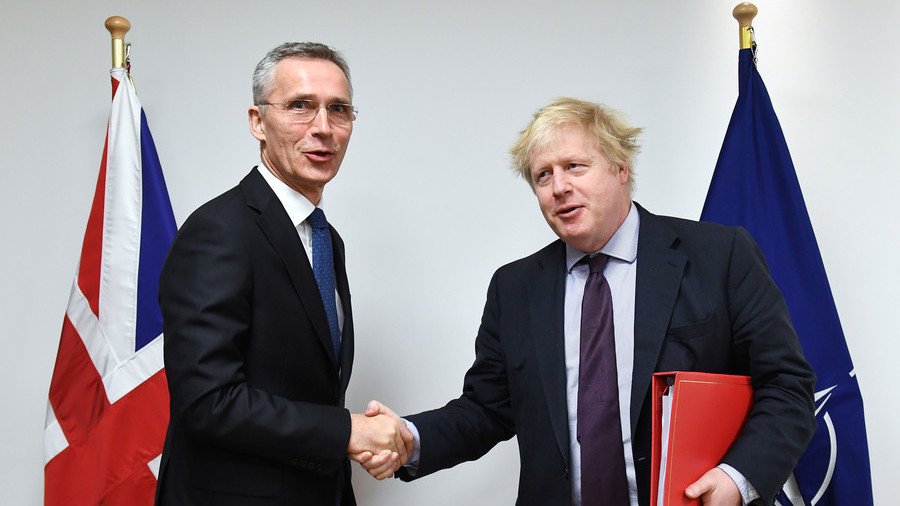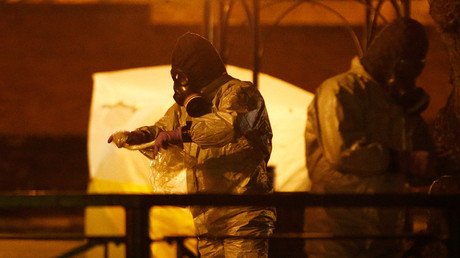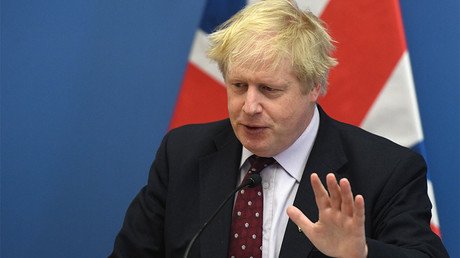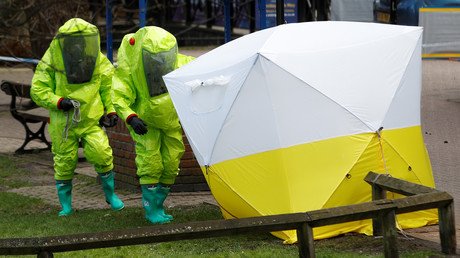‘Reckless Russians’: BoJo and NATO head need no proof to blame Moscow

NATO chief Jens Stoltenberg wasted no time backing the UK’s accusations against Moscow in the Skripal case, but the absence of facts did not seem to matter in this case or other “examples” of Moscow’s “reckless behavior.”
The NATO Secretary General delivered the comments at a joint press conference with the UK Foreign Secretary Boris Johnson in Brussels on Monday, where Johnson came to secure European support in the Skripal case.
READ MORE: Evidence before accusations: Austria asks for full-fledged Skripal investigation
Stoltenberg branded the Salisbury chemical incident an “attack,” despite the fact that the exact causes of the alleged poisoning of former double-agent Sergei Skripal and his daughter were still undetermined and not even a shade of evidence has surfaced yet. The UK blamed Moscow for the incident, naming the mysterious Novichok nerve agent, presumably of Soviet origin, as the toxin involved.
“The attack in Salisbury was the first use of a nerve agent on Alliance territory. It showed total disrespect for human lives. And the attack was an unacceptable breach of international norms and rules,” Stoltenberg stated, adding that the incident followed a pattern of “reckless behavior” on Russia's part.
The official provided examples of such “behavior,” which consisted of a usual set of anti-Russian allegations raised over the past few years. The only fact Stoltenberg mentioned was the reunification of Crimea with Russia, following the 2014 referendum. As usual, the NATO chief described the reunification as an act of “illegal annexation” and a violation of the “sovereignty and territorial integrity of Ukraine.” The other “examples” he mentioned did not hold water and were mere speculations, namely alleging that Russian was involved in the civil conflict in eastern Ukraine and “different types of hybrid tactics including cyber-attacks” of some sort.
“We have seen that Russia continues to interfere in our democratic political processes and undermine our democratic institutions,” Stoltenberg stated, without giving any concrete examples.
Johnson provided a similar list of “samples” of Russia's allegedly “reckless behavior,” also adding the ongoing anti-terrorism campaign in Syria to the list. It was unclear how the Foreign Secretary considered fighting internationally recognized terrorist groups under the invitation of a country’s democratically elected government would be considered “reckless.”
Stoltenberg insisted that NATO’s approach to Russia was “firm, defensive and proportionate,” but with “openness to a meaningful dialogue.”
“We continue to call on Russia to provide complete disclosure of the Novichok program to the Organization for the Prohibition of Chemical Weapons,” Stoltenberg said, while he accused Russia of “disregard for international peace and security,” which was apparently shown through Moscow’s reaction to the UK’s accusations over the Skripal case.
Russia has firmly dismissed all the allegations and urged the UK to provide samples of the nerve agent or some other evidence, instead of simply producing hysterical accusations.
“The fact, that they [UK officials] categorically reject to file an official request and deliberately and arrogantly fan anti-Russian rhetoric in the public sphere bordering on hysteria, indicates that they clearly understand they have no formal pretext to go down a legal road,” Russian Foreign Minister Sergey Lavrov said on Friday.















